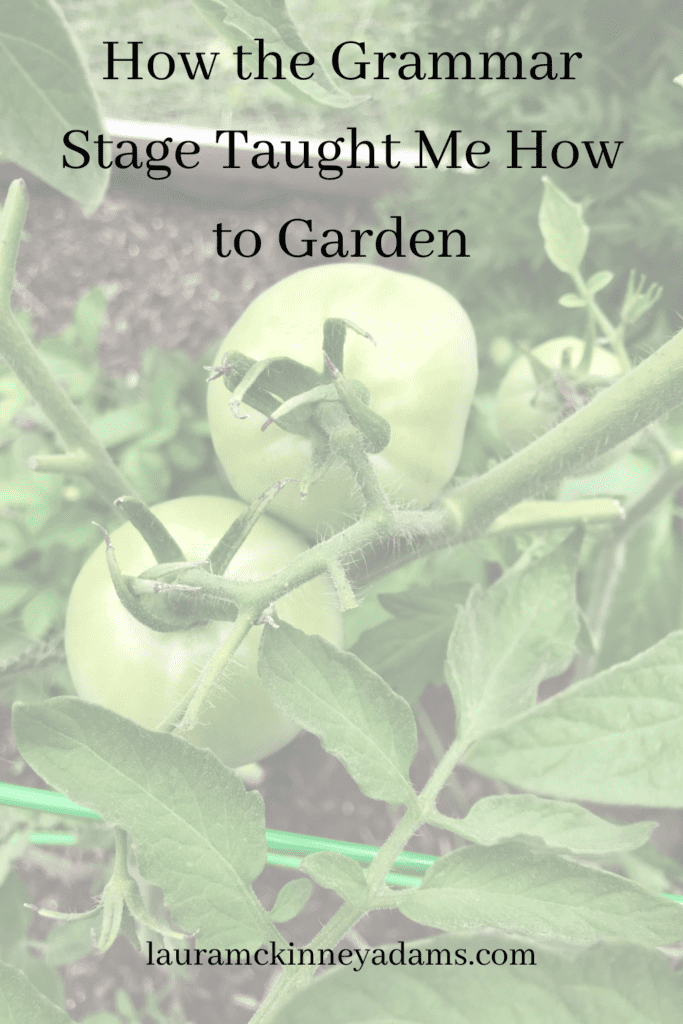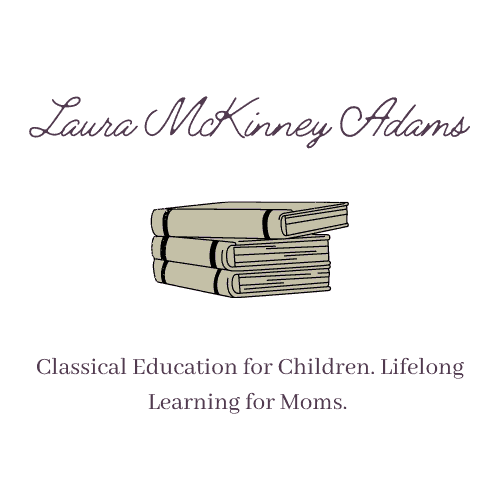This post contains affiliate links, which means I might make a small commission if you make a purchase. This does not affect your cost. Thank you!

In 1947, Dorothy Sayers gave a speech entitled “The Lost Tools of Learning.” Interestingly enough, Sayers was known for her writing of detective novels. She was not an educator. She admits as much within the first sentence of her speech. Even so, her ideals ring true today.
The speech was subsequently published as an essay. In it, Sayers states that there are three stages to learning: grammar, dialectic, and rhetoric. She calls these three the Trivium. The Sayers essay inspired several versions of classical education that are practiced today, most notably by Well-Trained Mind Press and Classical Conversations.
In this article, I’ll discuss the first of those stages. The grammar stage is traditionally understood as taking place from grades 1 through 4. My son is in this stage at present, so it is my focus.
Grammar stage students focus on learning the language of learning.
The “ages and stages” model of the Trivium has always appealed to me because it makes so much sense in the context of what we know about human development. Furthermore, it rings true in the context of what we know from personal life experience. The first step to learning any new topic is mastering the language of that topic.
Take for example, gardening. I knew absolutely nothing about it until my middle child decided it was his passion in life earlier in the bleak midwinter of 2022.
When I began to learn about gardening, what did I do? I learned the lingo.
What is a leggy seedling? What is the difference between a perennial and an annual? What are brassicas? What is overwintering?
Before I could understand what to do in any of these situations, I first had to understand the language.
In the grammar stage, the student becomes acquainted with the language of any number of fields of study. He learns the periodic table of the elements, basic Latin, and the names of major historical figures. He does not understand all the ins and outs of these things, but he knows their names.
The first step in getting to know a person is knowing their name. The same applies to a field of study. Who are the major players? What are the most important concepts? These are the questions we answer during the grammar stage.
High school level sciences challenge many students due to the sheer volume of unfamiliar vocabulary. The goal is that the student will be less intimidated and better able to focus on the application of the information if he is already familiar with the language of biology.
The grammar stage happens to learners of any age. Older learners soon advance onto the next stage. However, elementary age children are often not ready to grapple with more complex ideas.
We use memory work from Claritas Publishing. In addition to memorizing the facts, I also read aloud books corresponding to the topics. The context is meant for exposure, not for mastery. We will master the context later.
You can’t understand algebra without a solid foundation in arithmetic. You can’t compose a sentence in a foreign language without knowing some vocabulary and grammar.
We must embrace the tools of learning, and retain the ability to use them throughout our lives.

Leave a Reply